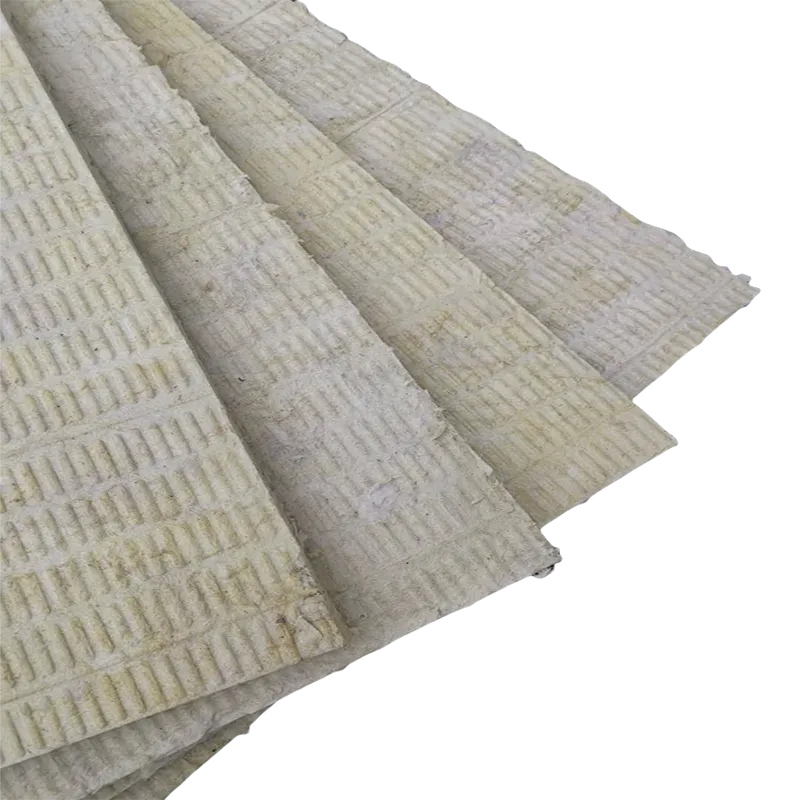What are Rock Wool Boards?
What is Rock Wool Board
Rock Wool Board
Rock wool board, or mineral wool board, is an insulation material widely recognized for its excellent thermal, acoustic, and fire-resistant properties. This versatile product is used in various industries, from construction to manufacturing, due to its superior performance and sustainable benefits.

Composition and Production
Rock wool board is made from natural basalt rock and recycled slag, which are melted at high temperatures and spun into fine fibers. These fibers are then bonded together using a resin binder and compressed into rigid boards. The resulting material is lightweight yet dense, providing robust insulation and structural integrity.
Key Benefits
1. Thermal Insulation
Rock wool board offers exceptional thermal insulation, making it ideal for maintaining stable indoor temperatures. Its low thermal conductivity reduces heat loss in winter and heat gain in summer, leading to energy savings and increased comfort in buildings.
2. Fire Resistance
One of the most significant advantages of the rock wool board is its fire resistance. It can withstand temperatures above 1000°C without melting or releasing toxic fumes, providing a critical safety feature in residential, commercial, and industrial buildings.
3. Sound Absorption
The fibrous structure of the rock wool board makes it an excellent sound absorber. It effectively reduces noise transmission between rooms and from external sources, enhancing acoustic comfort in environments such as offices, schools, and residential buildings.
4. Moisture Resistance
Rock wool board is highly resistant to moisture and water absorption, preventing mold growth and maintaining its insulating properties even in humid conditions. This characteristic makes it suitable for basements, bathrooms, and other moisture-prone areas.
5. Sustainability
Rock wool board is an environmentally friendly insulation option made from abundant natural materials and recycled content. It is fully recyclable at the end of its life cycle, contributing to reduced waste and environmental impact.
Applications
- Building Insulation
Rock wool board is commonly used in walls, roofs, floors, and ceilings to improve energy efficiency and fire safety in residential and commercial buildings.
- Industrial Insulation
In industrial settings, the rock wool board insulates pipes, tanks, and equipment, ensuring process stability and worker safety by maintaining temperature control and reducing fire risks.
- Acoustic Panels
Due to its sound-absorbing properties, rock wool board is used in acoustic panels for theaters, recording studios, and other environments where noise control is crucial.
- Fireproofing
Rock wool board is often installed in fire-rated walls, ceilings, and partitions to enhance the fire resistance of buildings and provide critical escape time during a fire.
In conclusion, Rock wool board is a highly effective insulation material that combines thermal performance, fire resistance, sound absorption, and sustainability. Its versatility and reliability make it a preferred choice for architects, builders, and engineers aiming to create safe, comfortable, and energy-efficient spaces. As the demand for sustainable building solutions grows, the use of rock wool boards is expected to continue rising, playing a vital role in modern construction and industrial applications.
 English
English
Roof Thermal Insulation with Aluminum Foil Veneer Glass Wool Board: A Smart Solution for Energy Efficiency
As energy costs rise and the demand for sustainable building solutions increases, roof thermal insulation has become a critical aspect of modern construction. One of the most effective materials for achieving superior insulation is the Aluminum Foil Veneer Glass Wool Board. This advanced insulation solution combines the thermal efficiency of glass wool with the reflective properties of aluminum foil, offering enhanced performance for roofing applications.
Read MoreRecycled Glass Wool Blanket for Building Insulation: A Sustainable Solution
As the demand for eco-friendly building materials increases, Recycled Glass Wool Blanket has emerged as an excellent choice for building insulation. Made from recycled glass, this material offers an environmentally responsible alternative to traditional insulation options, helping reduce waste while improving energy efficiency in homes and commercial buildings.
Read MoreEco-Friendly Materials: Glass Wool Blanket for Sustainable Insulation
As the world becomes more focused on sustainability and reducing environmental impact, eco-friendly materials have gained significant importance in construction and manufacturing. One such material that stands out in both environmental performance and versatility is Glass Wool Blanket. Made from recycled glass, this sustainable insulation solution offers a variety of benefits that help reduce energy consumption while contributing to a greener future.
Read More